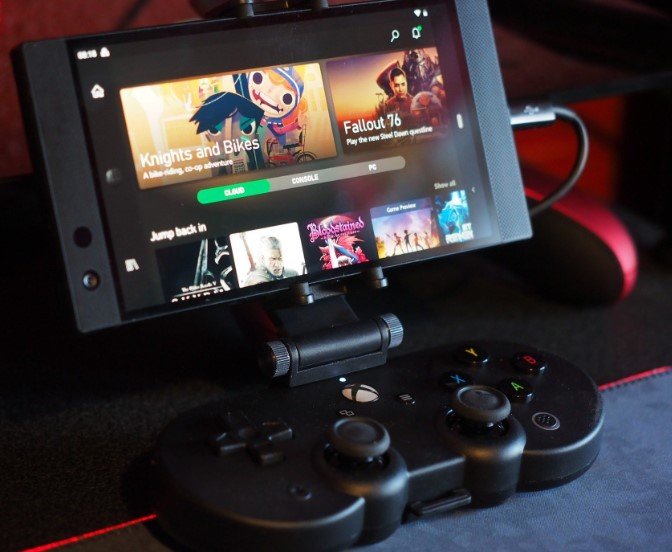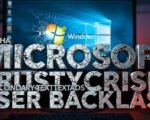Microsoft is quietly reshaping the way it presents Xbox gaming on Windows, and the recent use of “Xbox PC” branding could be a clue to bigger plans in the works. With console sales slowing and the lines between PC and Xbox blurring, Microsoft may be gearing up to promote a new Windows-based gaming device, possibly a handheld, that merges the two worlds in a fresh way.
The “Xbox PC” tag has popped up more often lately — not just in blogs and trailers but right on the game packaging itself. What’s behind this subtle shift? And could it signal the next big move for Microsoft’s gaming division?
Xbox PC: More Than Just a Label?
At first glance, calling Windows games “Xbox PC” seems like a small change. But it’s one that’s caught the attention of gamers and insiders alike. Previously, Microsoft’s naming on the Store and marketing materials kept Xbox console and PC gaming clearly separate. Now, titles like Gears of War: Reloaded and Mio: Memories in Orbit are openly using the Xbox PC branding.
Why? Well, Microsoft has been pushing to create a seamless experience across consoles and Windows PCs, but the reality isn’t always straightforward. Not every Xbox title works on both platforms, and the apps themselves — Xbox app for Windows versus Xbox console — can confuse users.
By introducing the Xbox PC label, Microsoft could be trying to clarify exactly which games and features belong to the Windows side of its gaming universe. It’s a neat little shortcut, cutting through the noise and setting clearer expectations.
This isn’t just marketing fluff — it actually helps gamers understand compatibility better and potentially reduces frustration when a game they want doesn’t work on their PC.

Rumors of a Windows-Based Xbox Handheld
Beyond branding, the whispers around Microsoft’s next hardware moves have been growing louder. The idea of a new Xbox console running a full Windows OS is fascinating, and it aligns with the Xbox PC branding shift.
One hot topic is Project Kennan, rumored to be a partnership between Microsoft and Asus, where the goal is to create a handheld gaming PC with an Xbox twist. Think Asus’ ROG Ally but with Xbox controls and an interface designed to feel more like a console than a typical PC.
Microsoft reportedly had a second handheld in development, targeted for 2027, but that project seems to have been put on pause. The company is apparently prioritizing existing Windows handhelds instead of launching a new dedicated Xbox device — at least for now.
This approach would represent a big change. Instead of a dedicated Xbox console with unique software, Microsoft could be betting on Windows-based devices that tap into their massive PC ecosystem. This way, they can deliver Xbox games anywhere — on desktops, laptops, or handheld PCs — with a consistent Xbox feel.
What’s Happening with Xbox Console Sales?
It’s no secret that Xbox Series X|S sales have cooled off. The industry is shifting fast, with cloud gaming and cross-platform play blurring the lines between consoles, PCs, and even mobile. Microsoft is leaning into this trend, focusing more on software and services than just hardware.
Cross-platform publishing is the name of the game. The goal? Get Xbox games into as many hands as possible, whether that’s on a console, a gaming PC, or streaming through the cloud. This strategy means the traditional console is less the star and more a part of a broader gaming ecosystem.
Xbox PC branding could be the banner under which Microsoft unites this ecosystem. It’s a way to keep the Xbox identity strong on Windows, especially as gaming becomes less about specific machines and more about access to titles and services.
What This Means for Gamers
For players, these moves mean a few things:
-
More clarity on what games are available and optimized for Windows.
-
Potentially better integration between PC gaming and Xbox services.
-
A new kind of handheld Xbox experience could be on the horizon — one that runs Windows but feels like Xbox.
It’s a smart play, considering how much PC gaming still dominates. Windows PCs have long been the hub for Xbox gaming, especially with Xbox Game Pass and the Xbox app. But confusing naming and fragmented experiences have held it back from being a smooth ecosystem.
Microsoft’s gradual rebranding to Xbox PC may be subtle, but it shows they’re serious about evolving their approach to match how people actually play.
The new Xbox PC branding might seem like a small tweak, but it reflects a broader shift in Microsoft’s gaming playbook. It’s a hint that the future could blur the line between PC and console even further, making Xbox less about a box in your living room and more about gaming everywhere you want.
Microsoft is playing the long game here. Xbox on Windows isn’t just an option — it’s becoming a pillar of their entire gaming vision. And if the rumors of a Windows-powered handheld Xbox come true, the way we think about consoles might change yet again.








